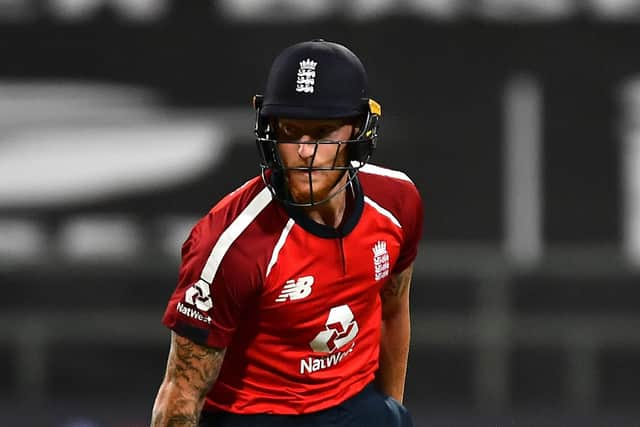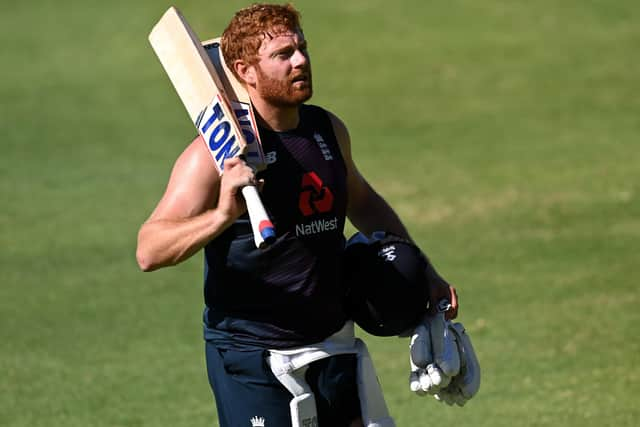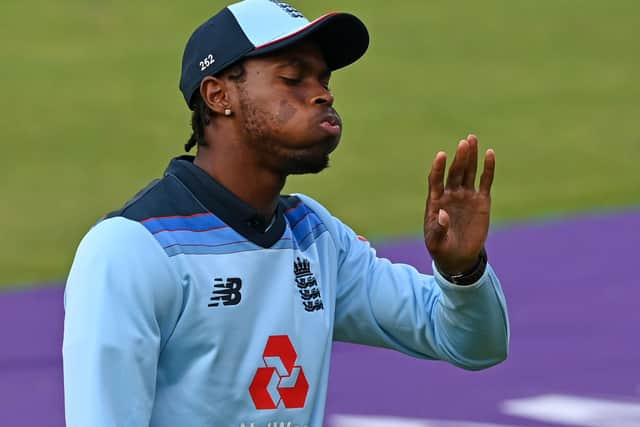Test cricket now playing second fiddle to the riches of the IPL - Chris Waters
“Let him go then, and he can take any other bugger who feels t’same way,” said the club’s famously forthright cricket chairman.
I have often wondered what Sellers would have made of the modern player who goes to the Indian Premier League instead of playing for England or his county.
Advertisement
Hide AdAdvertisement
Hide AdAs this is a family newspaper, however, and the word “bugger” is about as far as I dare go, I had better leave that to your imagination.


What is certain, though, is that Sellers, a man who would go ballistic if Yorkshire finished as low as second in the County Championship, would have had such players out of the door faster than you could say “I hate The Hundred”.
Basically, they would never have played for Yorkshire again.
In practice, of course, times have changed and life has moved on.
Advertisement
Hide AdAdvertisement
Hide AdThe IPL is now a firm part of cricket’s saturated and unwieldy schedule, along with any number of T20 franchise tournaments.


Once the gateway to vast riches for its participants was opened, there was no going back.
Nowadays, if Yorkshire or England were to tell their players to sling their hook for going to the IPL, where they can earn vast sums, a rather obvious problem would soon emerge: namely, they would have far fewer top players, which would impact on everything, most obviously on results and financial health.
And so we have this curious, unspoken state of affairs in which everyone knows that money is king, but no one likes to say it – obviously because it’s a fairly ugly admission.
Advertisement
Hide AdAdvertisement
Hide AdErgo, the counties and England basically accept that they will lose top players to franchise competitions and there is nothing they can do – not unless they want to weaken themselves in the process.


When Liam Plunkett and David Willey were late replacements for the IPL two years ago, for example, which clashed with the start of the Championship season, Yorkshire felt powerless to stop them from going, reasoning that they would have two unhappy and perhaps not fully-focused players on their hands if they took the Brian Sellers approach.
Indeed, had Yorkshire delivered a “play-for-us-or-you’re-out” ultimatum, as Sellers would have done, that would potentially have devalued the Yorkshire “brand” going forward, risked antagonising the players and, of course, set a precedent for what is now hardly an uncommon state of affairs in terms of counties losing players to franchise cricket at the flutter of a banknote.
Equally, we have the present situation in which England are “resting” players for international cricket, even though those same players are taking part in IPL competitions that are necessitating that requirement.
Advertisement
Hide AdAdvertisement
Hide AdSimilarly, were England to put their foot down, they would be cutting off their nose to spite their face and would soon reach a situation in which they would have to field a second string – not very helpful, of course, when the England and Wales Cricket Board is trying to negotiate the next broadcasting contract, with the current one worth £1.1b over five years.
Having established, therefore, that the IPL is now a fact of life, and with all the usual caveats that you can’t blame players for wanting to cash in during a short career and that the selectors are in an unenviable position, the reality is this: international cricket is no longer the priority in the new world order.
The financial rewards are so great, and the landscape of cricket has changed so starkly, that the IPL is more important than, say, winning the Test series in India that starts on Friday.
Players, coaches, selectors, and so on, are dealing with cricket as they find it today and are not personally responsible for the sport’s evolution.
Advertisement
Hide AdAdvertisement
Hide AdAt the same time, let’s not hear any more excuses, please, that the IPL is invaluable preparation for the World T20, or an invaluable learning experience for everyone concerned, or that its cricketing merits are somehow paramount.
Yes, there are cricketing merits to IPL – England’s progress in white-ball cricket is testament to them – but there is a simple way of debunking such drivel: namely, would anyone be playing in the IPL if there was no money involved?
Consequently, the priority is not really winning the Ashes in Australia next winter, for how can it be?
If it was, then why are top players missing some India Tests – a series that gives England a much stiffer examination on paper and allows them to build towards the Ashes? Ditto if England’s stated aim of becoming world No 1 in the Test rankings was really the overarching imperative. To suggest otherwise, or to beat about what is a glaringly obvious bush, is to pull the wool over supporters’ eyes.
Advertisement
Hide AdAdvertisement
Hide AdIt would also be good, would it not, if we did not have to listen to all the guff about the so-called hardships of biosecure bubbles and the mental health aspects.
Yes, it cannot be easy – no one is denying that there are not sacrifices being made and that mental health is a serious subject. At the same time, would anyone seriously prefer the alternatives that many thousands, if not millions, of people face at present?
Look around…
There are people who have lost their jobs and have no money. There are people living in dire accommodation and circumstances through lockdown. There are people trying to work jobs from home while bringing up children. There are millions who do not earn in a lifetime what a top international player earns in just one year from a central contract, never mind from IPL, people who do not have the privileges even of “bubble” life.
So please – commentators, summarisers, former England captains, etc – don’t keep going on about “hardships” when these players are financially secure, own their own homes, do something they love doing and are feted the world over. Frankly, if I was a player, I’d be embarrassed to hear some of the guff that is said.
Advertisement
Hide AdAdvertisement
Hide AdThe reality is that this is a tough time for everyone – some more than others – and that Test selection is shaped by market forces.
The Ashes, the India series, Test cricket itself is clearly the focus when people are playing in it; i.e., they want to do well and give their best.
But the sport has changed beyond all recognition since the birth of T20 and this winter is proving how much.
By the end of it, some England players will have spent more than three months in IPL bubbles and missed international cricket as a result. That is the reality of cricket now.
Comment Guidelines
National World encourages reader discussion on our stories. User feedback, insights and back-and-forth exchanges add a rich layer of context to reporting. Please review our Community Guidelines before commenting.